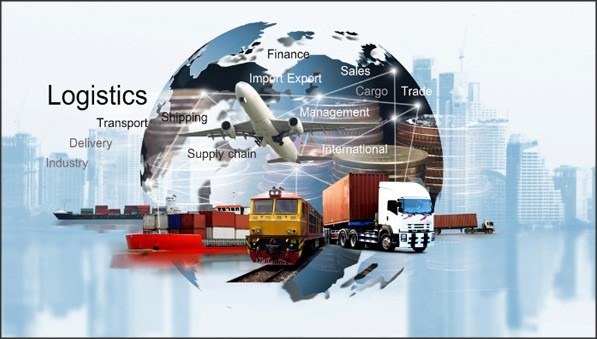Starting a Logistics Company: Navigating the Supply Chain

Source : https://truxcargo.com
starting a logistics company can be a daunting task. It requires a deep understanding of the supply chain, from the sourcing of raw materials to the delivery of finished products. It also requires a keen eye for detail and an ability to anticipate and respond to customer needs. With the right knowledge and resources, however, starting a logistics company can be a rewarding and profitable venture. This guide will provide an overview of the steps involved in starting a logistics company, from understanding the supply chain to finding the right partners and customers. With the right preparation and dedication, you can be well on your way to becoming a successful logistics entrepreneur.
How to Develop a Logistics Strategy for Starting a Logistics Company
starting a logistics company requires a comprehensive strategy to ensure success. Logistics companies are responsible for the efficient movement of goods from one place to another, and the development of a successful strategy requires careful consideration of the company’s goals, resources, and capabilities. This article outlines the key steps for developing a logistics strategy for a new logistics company.
1. Establish Goals and Objectives: The first step in developing a logistics strategy is to establish the company’s goals and objectives. This should include a clear vision of the company’s desired outcomes, such as increased efficiency, cost savings, and customer satisfaction. It is also important to consider the company’s long-term goals, such as expanding into new markets or increasing market share.
2. Analyze the Market: The next step is to analyze the market to identify potential opportunities and threats. This includes researching the competition, understanding customer needs, and assessing the current trends in the industry. This analysis should provide insight into the company’s strengths and weaknesses, as well as potential areas for growth.
3. Develop a Plan: Once the goals and objectives have been established and the market has been analyzed, the next step is to develop a plan to achieve those goals. This plan should include a detailed timeline, budget, and resources needed to implement the strategy. It should also include a risk management plan to identify and mitigate potential risks.
4. Implement the Plan: Once the plan has been developed, it is time to implement it. This includes hiring staff, purchasing equipment, and establishing processes and procedures. It is important to ensure that the plan is implemented in a timely and efficient manner to ensure success.
5. Monitor and Evaluate: The final step is to monitor and evaluate the progress of the strategy. This includes tracking key performance indicators, such as customer satisfaction, cost savings, and efficiency. It is also important to review the plan regularly to ensure that it is still meeting the company’s goals and objectives.
By following these steps, a new logistics company can develop a comprehensive strategy to ensure success. It is important to remember that the strategy should be flexible and adaptable to changing market conditions. Additionally, it is essential to monitor and evaluate the progress of the strategy to ensure that it is meeting the company’s goals and objectives.
Understanding the Different Types of Logistics Services and How to Choose the Right One for Your Business
Logistics services are an integral part of any business, as they are responsible for the efficient movement of goods and services from one point to another. Logistics services can range from simple transportation of goods to complex supply chain management. Choosing the right logistics service for your business is essential for ensuring the smooth and efficient operation of your business.
There are several different types of logistics services available, each with its own unique set of benefits and drawbacks. The most common types of logistics services include:
1. Transportation: This type of logistics service involves the movement of goods from one point to another. This can include trucking, rail, air, and sea transportation. This type of service is ideal for businesses that need to move large amounts of goods quickly and efficiently.
2. Warehousing: Warehousing services involve the storage of goods in a secure facility. This type of service is ideal for businesses that need to store large amounts of goods for long periods of time.
3. Inventory Management: Inventory management services involve the tracking and management of goods in a warehouse or other storage facility. This type of service is ideal for businesses that need to keep track of their inventory in order to ensure that they have the right amount of goods on hand at all times.
4. Distribution: Distribution services involve the delivery of goods from one point to another. This type of service is ideal for businesses that need to deliver goods to customers quickly and efficiently.
5. Logistics Consulting: Logistics consulting services involve the analysis and optimization of a business’s supply chain. This type of service is ideal for businesses that need help in streamlining their supply chain and improving their overall efficiency.
When choosing the right logistics service for your business, it is important to consider the size and scope of your business, as well as the type of goods you are transporting. Additionally, it is important to consider the cost of the service, as well as the level of customer service provided. By taking all of these factors into consideration, you can ensure that you choose the right logistics service for your business.
Conclusion
starting a logistics company can be a daunting task, but with the right knowledge and resources, it can be a rewarding and profitable venture. Understanding the complexities of the supply chain, the importance of customer service, and the need for efficient operations are all key components to success. With the right planning and execution, a logistics company can be a great way to make a living and provide a valuable service to customers.





